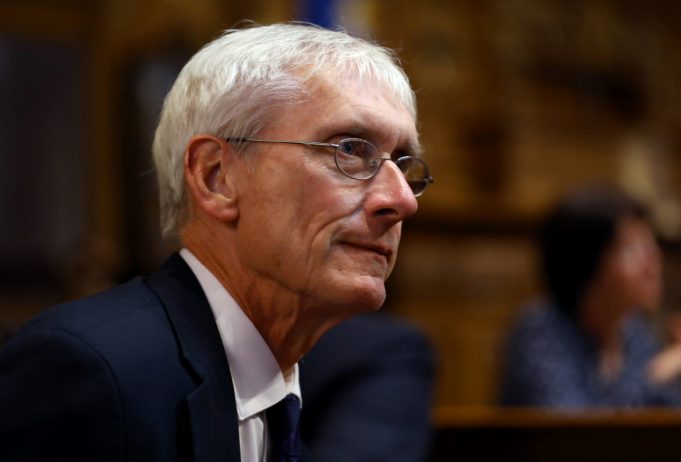Gov. Tony Evers today announced that his budget will include proposals to legalize medical marijuana, decriminalize possession of small amounts of marijuana for personal use, establish an expungement procedure for individuals who have completed their sentence or probation for possession, and align Wisconsin’s laws on cannabidiol, also known as CBD oil, with federal standards.
“As a cancer survivor, I know the side effects of a major illness can make everyday tasks a challenge. People shouldn’t be treated as criminals for accessing a desperately-needed medication that can alleviate their suffering,” Gov. Evers said in a press release. “Wisconsinites overwhelmingly agree that this is a critically important issue. But it’s not just about access to health care, it’s about connecting the dots between racial disparities and economic inequity.”
The governor is hoping Wisconsin will join more than 30 other states and the District of Columbia in legalizing medical marijuana – look here for link. Last year, nearly one million voters in 16 counties and two cities in Wisconsin voted to approve non-binding referenda asking if marijuana should be legal for medical or recreational use. These referenda all passed by significant majorities.
Under the governor’s proposal, a physician, or a practitioner under the direction of a physician, can recommend the use of medical marijuana to alleviate symptoms related to medical conditions such as cancer, glaucoma, post-traumatic stress disorder, chronic pain, severe nausea, and seizures.
The governor will also align Wisconsin’s laws on cannabidiol, also known as CBD oil, with federal standards. CBD oil is made from marijuana and can be used to treat seizures in children. Currently, Wisconsin law requires families to possess CBD oil only with yearly certification by a physician. The governor believes that families and individuals should be able to obtain this treatment without additional barriers.
Reforming Wisconsin’s marijuana laws will also address the social and racial justice aspect of marijuana use, the Governor’s Office said in a press release noting that Wisconsin has the highest incarceration rate in the country for Black men, and drug-related crimes account for as many as 75-85 percent of all inmates in our prisons.
“Too many people, often persons of color, spend time in our criminal justice system just for possessing small amounts of marijuana. That doesn’t make our communities stronger or safer,” Evers said in a statement. “This shouldn’t be a Republican issue or Democratic issue, and I look forward to working on both sides of the aisle to pass this proposal in my budget.”










